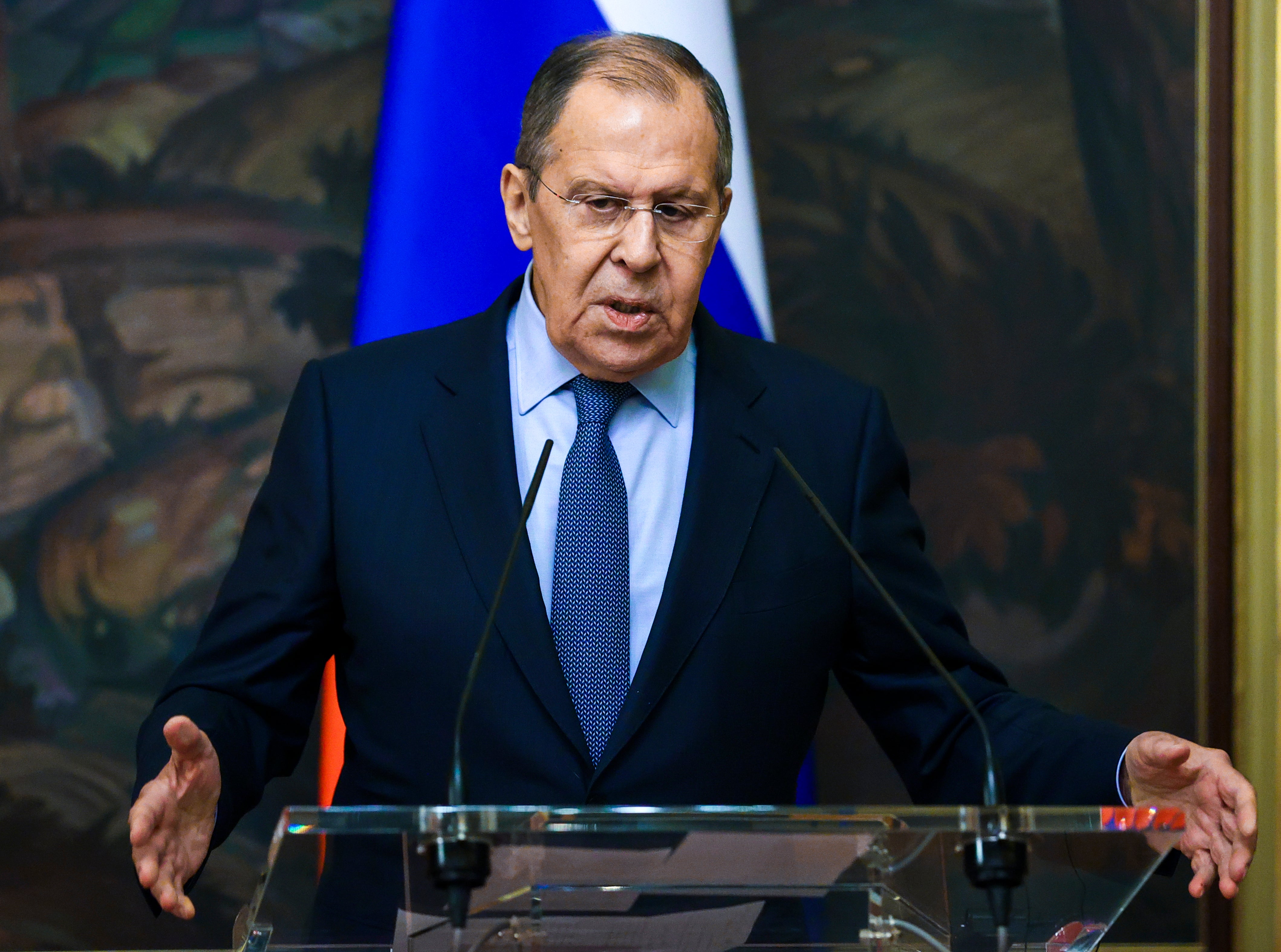Russia moves more troops westward amid Ukraine tensions
Russian officials say Moscow is sending an unspecified number of troops from the country’s far east to Belarus for major joint drills

Your support helps us to tell the story
From reproductive rights to climate change to Big Tech, The Independent is on the ground when the story is developing. Whether it's investigating the financials of Elon Musk's pro-Trump PAC or producing our latest documentary, 'The A Word', which shines a light on the American women fighting for reproductive rights, we know how important it is to parse out the facts from the messaging.
At such a critical moment in US history, we need reporters on the ground. Your donation allows us to keep sending journalists to speak to both sides of the story.
The Independent is trusted by Americans across the entire political spectrum. And unlike many other quality news outlets, we choose not to lock Americans out of our reporting and analysis with paywalls. We believe quality journalism should be available to everyone, paid for by those who can afford it.
Your support makes all the difference.Russia is sending troops from the country’s far east to Belarus for major war games, officials said Tuesday, in a deployment further beefing up Russian military assets near Ukraine amid Western fears of an invasion.
Deputy Defense Minister Alexander Fomin said the drills are intended to practice a joint response to external threats by the alliance of Russia and Belarus, which have close political, economic and military ties. Fomin didn’t say how many troops and weapons were being redeployed for the exercises, or give the number of troops that will be involved in the war games.
Ukrainian officials have warned that Russia could launch an attack from various directions, including from the territory of its ally Belarus.
The deployment would dramatically bolster an estimated 100,000 troops with tanks and other heavy weapons amassed near Ukraine in what the West fears could be a prelude to an invasion. Russia has denied an intention to attack its ex-Soviet neighbor, but demanded guarantees from the West that NATO will not expand to Ukraine or other ex-Soviet nations or place its troops and weapons there.
Washington and its allies firmly rejected Moscow’s demands during last week’s Russia-U.S. negotiations in Geneva and a related NATO-Russia meeting in Brussels.
Fomin said the drills, which involve an unspecified number of troops from Russia's Eastern Military District that encompasses Eastern Siberia and the Far East, reflect the need to practice concentrating the country's entire military potential in western Russia.
"A situation may arise when forces and means of the regional group of forces will be insufficient to ensure reliable security of the union state, and we must be ready to strengthen it," Fomin said at a meeting with foreign military attaches. “We have reached an understanding with Belarus that it's necessary to engage the entire military potential for joint defense.”
Belarus' authoritarian president, Alexander Lukashenko said the joint maneuvers will be conducted on Belarus’ western border and also in the country’s south, where it borders Ukraine. Lukashenko has increasingly relied on the Kremlin’s support amid Western sanctions over a brutal crackdown on domestic protests.
The U.S. and its allies have urged Russia to deescalate the situation by calling the troops back to their barracks.
“In recent weeks, more than 100,000 Russian troops with tanks and guns have gathered near Ukraine without an understandable reason, and it’s hard not to understand that as a threat,” German Foreign Minister Annalena Baerbock told reporters after the talks in Moscow with Russian counterpart Sergey Lavrov
Lavrov has responded by reaffirming Moscow's argument that it's free to deploy its forces wherever it considers it necessary on its territory.
“We can’t accept demands about our armed forces on our own territory,” Lavrov said, adding that “troops’ training is something that every country does.”
“We aren’t threatening anyone, but we are hearing threats to us," he added. "We will decide how to react depending on what specific steps our partners will take.”
Baerbock emphasized that the West is ready to continue a dialogue with Russia to help defuse tensions.
“We are prepared for a serious dialogue on mutual agreements and steps to bring everyone in Europe more security,” she said, noting that last weeks security talks were a “first sensible step toward such a dialogue."
Russia annexed the Crimean Peninsula from Ukraine in 2014 after the ouster of Ukraine’s Moscow-friendly leader and also threw its weight behind a separatist insurgency in eastern Ukraine. More than 14,000 people have been killed in nearly eight years of fighting there.
___
Geir Moulson contributed to this report from Berlin.